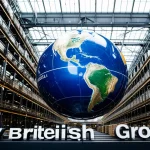Understanding the political implications of recent shifts in Europe
Europe is witnessing notable political changes as 54% of its citizens express increased concern over security, according to a 2024 Eurobarometer survey. These shifts ripple through European policy and defense discussions, raising an intriguing question: how will these evolving attitudes shape the continent’s future? By exploring these trends, we can better grasp the complex dance between national interests and collective European goals.
In parallel : What are the major sports events capturing the world’s attention?
Key political changes transforming Europe today
Europe is navigating a period of significant political shifts that continue to reshape its landscape. Recent elections in several countries have brought fresh faces to power, reflecting shifting public sentiments on issues from security to economic reform. Take France, for example, where the latest election underscored a rising debate over national identity and Europe’s future role.
Meanwhile, the European Council has experienced subtle yet meaningful changes as member states reassess their priorities in light of global challenges. The European Commission is also evolving, pushing policies that emphasize cooperation but highlight differing visions of enlargement and integration. These developments are not just political chess moves—they have real impacts on how unity is crafted and tested across borders.
Also to see : How is the economy affecting everyday life worldwide?
For citizens and observers alike, these transformations signal a dynamic era for Europe, inviting us all to reflect on the continent’s shared ambitions and the complexities of making them a reality.
How Europe’s evolving political landscape affects its economy
Europe’s political scene has been shifting rapidly, and these changes ripple far beyond the ballot boxes. From the reshaping of trade policies to debates over the future of the single market, political decisions increasingly influence economic stability across the continent. When governments pivot on key issues, businesses and investors respond in kind, often cautiously.
Take, for instance, recent dialogues around enlargement policies and regulatory adjustments. These discussions impact investor confidence and cross-border trade flows, subtly altering the economic fabric Europe depends on. A tightening stance on external trade or uncertainties in European elections can create hesitation among companies considering new investments. In this environment, the economic pulse is closely tied to political developments, reinforcing just how interconnected governance and economic health truly are.
Europe’s response to fresh political challenges: a closer look
As Europe navigates a shifting political landscape, its institutions and member states find themselves at a crossroads, tackling new security and policy challenges with cautious determination. The European Union, known for its intricate decision-making process, is witnessing heated debates in the European Parliament, where diverse political actors grapple with balancing national interests against collective goals.
The European Commission plays a crucial role in steering responses, often proposing strategic initiatives aimed at strengthening defence cooperation and enhancing resilience against emerging threats. Meanwhile, countries like France are vocal in advocating for a stronger European stance on security while respecting the rule of law across the union. This dynamic interaction between institutions and member states reflects Europe’s ongoing effort to adapt and unify in the face of uncertainty.
What this political shift means for citizens across Europe
The recent political changes sweeping across Europe are more than just headlines — they will shape daily life for millions. From governance styles to social policies, citizens can expect tangible effects in the years to come.
Here’s a snapshot of what these shifts mean for you and your neighbors:
- Governance expectations: Increased calls for transparency and local engagement are pushing governments to be more responsive and accountable.
- Social policy focus: Debates on healthcare, education, and welfare are intensifying, with stronger emphasis on equity and inclusion across member states.
- Prospects for political union: While some countries advocate deeper integration, others remain cautious, fueling lively discussions within the European Council and Parliament.
- Future EU role: The Union’s foreign policy and economic strategies are evolving, seeking balance between national interests and collective European priorities.
As Europe navigates this transition, citizens have a vital role in shaping the debate and influencing the direction of their continent’s future.
Looking ahead: the future of European political integration
As Europe faces a rapidly changing geopolitical landscape, the future of its political integration remains a hot topic among experts and policymakers. Scholars like Thierry Chopin argue that the Union stands at a crossroads, balancing ambition with realism as it navigates enlargement policies and deeper cooperation.
On one hand, there’s a spirited debate about welcoming new members and expanding the European project, which promises greater unity but also demands stronger governance and a shared commitment to the rule of law. On the other, some voices emphasize the need to consolidate existing structures, particularly in defence and economic coordination, to ensure the Union remains resilient amid global uncertainties.
These perspectives highlight a vibrant academic dialogue that recognizes integration as a dynamic process—not a finished product. For citizens and observers alike, this unfolding story invites us to rethink what union means and how Europe can best face the challenges ahead while respecting its diverse identities.
Frequently asked questions about Europe’s political shifts
What are the main political changes happening in Europe right now?
Europe is seeing a rise in green politics, shifts toward digital governance, and modifications in alliance dynamics post-Brexit. These changes reshape policies and influence electoral outcomes across key states like France and Germany.
How do recent political shifts affect the future of Europe?
These shifts could redefine Europe’s global role, promoting unity or fragmentation. Adaptations in policy and leadership will shape responses to challenges like migration, climate, and economic recovery.
What consequences do political developments in Europe have on the economy?
Political instability may impact markets and trade, but innovation-focused policies could drive growth. Economic consequences vary by country, depending on national strategies and EU-wide coordination.
How are European countries responding to new political challenges?
Countries adopt diverse tactics, from strengthening democratic institutions to revising policies on sovereignty and integration. Collaborative efforts within the EU framework remain crucial for shared goals.
What can citizens expect from Europe’s changing political landscape?
Citizens can anticipate more transparent governance, increased citizen involvement, and evolving social policies. However, uncertainty remains as states balance national interests with collective European aims.
How does Thierry Chopin’s point of view enhance understanding of these shifts?
Thierry Chopin offers nuanced insights into policy trends and political behavior across Europe, helping audiences grasp complex developments through clear, expert perspectives.







